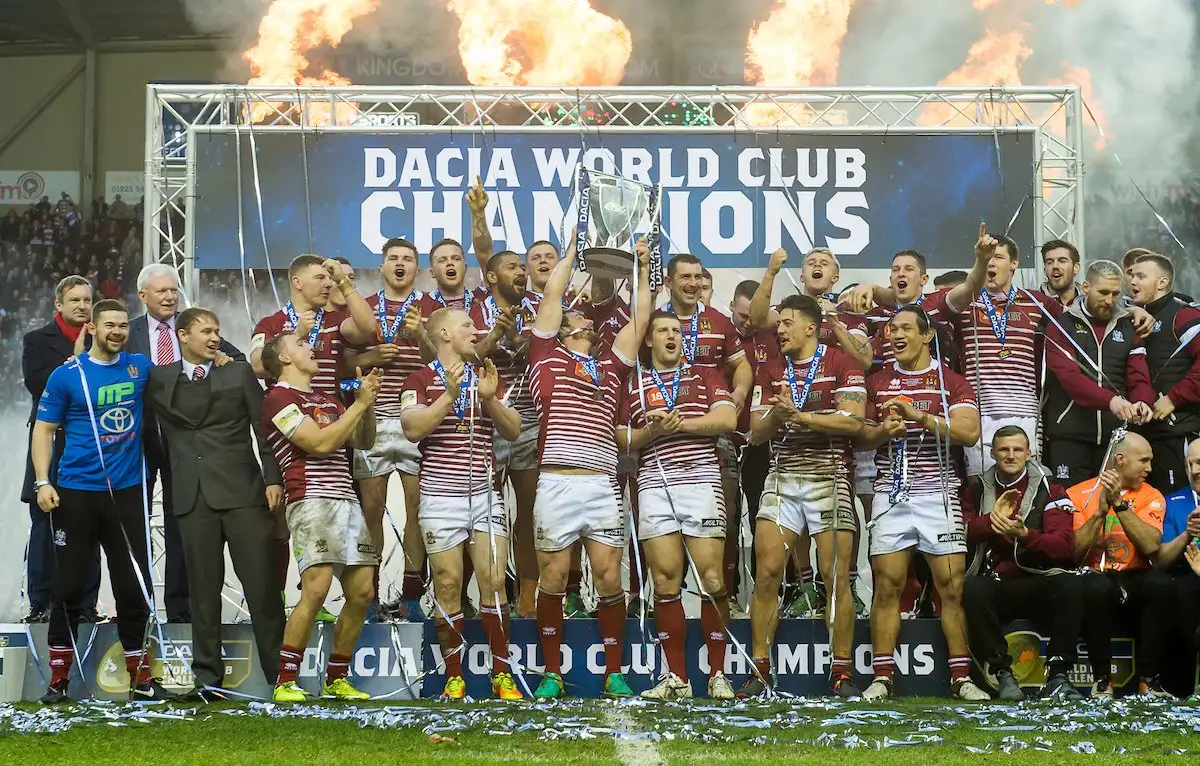Super League – A global game

The Super League has succeeded where football’s Premier League failed: a league match taking place in another nation’s backyard. Not just any nation, this is one of the game’s big hitters: Australia.
But the Super League persuaded NRL that this was a good idea and so we have Hull FC facing Wigan Warriors in Wollongong. These are not just two ordinary sides either; the pair are third and fourth favourites for the Grand Final with online betting site Betway quoting each at 11/2 and 13/2 respectively, as of 28th July 2017.
Following on from their Super League clash, the two sides face local opposition at the ANZ Stadium in Sydney, with Hull facing St George Illawarra and the Warriors taking on South Sydney Rabbitohs in a double-header in the 84,000-capacity venue a week later, on 17th February 2018.
It’s not uncommon for sports to migrate a game each season. Italy’s Supercoppa between the previous season’s champions and cup winners played abroad for more than a decade, most notably in 2002 when Juventus beat Parma 2 – 1.
The English Premier League sought to play a 39th game around the world – a full matchday programme across various continents – but fell foul of local associations as well as matchgoing fans in the UK. It’s an idea which isn’t dead in the eyes of EPL chairman Richard Scudamore but there is little chance of it happening soon.
Leading the way, however, is the NFL. The International Series began in 2007 with a single match at Wembley Stadium to last year and this, where four matches will be held in London and one in Mexico City. What was previously an insular sport has grabbed the nettle of globalisation and made it flourish.
Living in a Material World
Ian Lenagan, Wigan’s owner, enthused about “core business”, “sponsorships and partnerships”, and how this was the “biggest single commercial contract in the history of the club”. There’s no two ways about it; this is for financial gain, with the operational aspects of growing awareness of the club for players, coming a poor third behind fan engagement.
Australia loves both formats of rugby but New South Wales is a League hotbed. Sprinkle in the pixie dust of Russell Crowe owning the Rabbitohs and you have a recipe for wealth generation.
Noticeably, the focus is on Wigan, which isn’t a surprise in the sense that their trophy cabinet shelves creak under the strain of the trophy haul. However, it makes you wonder exactly who benefits from this? There isn’t an altruistic streak in professional sport; this isn’t a tour being undertaken for the benefit of fans in the UK.
This is about bankrolling the club, making money. It’s no surprise that it’s happened this season with the World Cup in Australia during October. There’s less gimmickry involved than The Wolfpack playing League 1 in England but league matches being played abroad never rests easy with the majority of fans.
For Wigan fans, it’s one less home game, and more to the point, they now face a tough match in unfamiliar conditions. For equity, the reverse fixture should also be played on a similar basis; you wonder how much sporting consideration, if any, came into the decision-making process.
Some will view the translocation phlegmatically, others recognise that in professional sport, the margins between victory and defeat can be so slim that the merest hint of an advantage can sway the battle. In this instance, it’s hard to make a credible case that it’s Wigan who haven’t ceded ground to Hull; decisive or enlightened on the club’s part?
Beyond these four shores
Only victory will make the latter relevant. Global television blurs the geographic boundaries and as with any sport, it’s right and proper that overseas fans get to watch the team live. In a league match without reciprocity in the reverse fixture? At best, it undermines the concept of league football where you play home and away against each opponent.
Could the ESL however, be paving a way for the first global sporting league? The Sydney Morning Herald lambasts the NRL for allowing the matches due to internal politics. The ESL stole a march in France and Dublin with franchises while New York becomes more anglicised every year, in a sporting sense at least.
The question of domestic fans in those circumstances becomes less relevant. It truly is a competition where travelling fans are an oddity, a relic of a bygone era. With Union taking the majority of the media’s attention, League needed to respond. Parochialism burned through League’s soul for decades; now it is a global game with ambitions to become a market leader in British sport in that sense.
The match between Wigan and Hull needs to be an unqualified success for that to happen. You wouldn’t bet against that with the two sides involved.